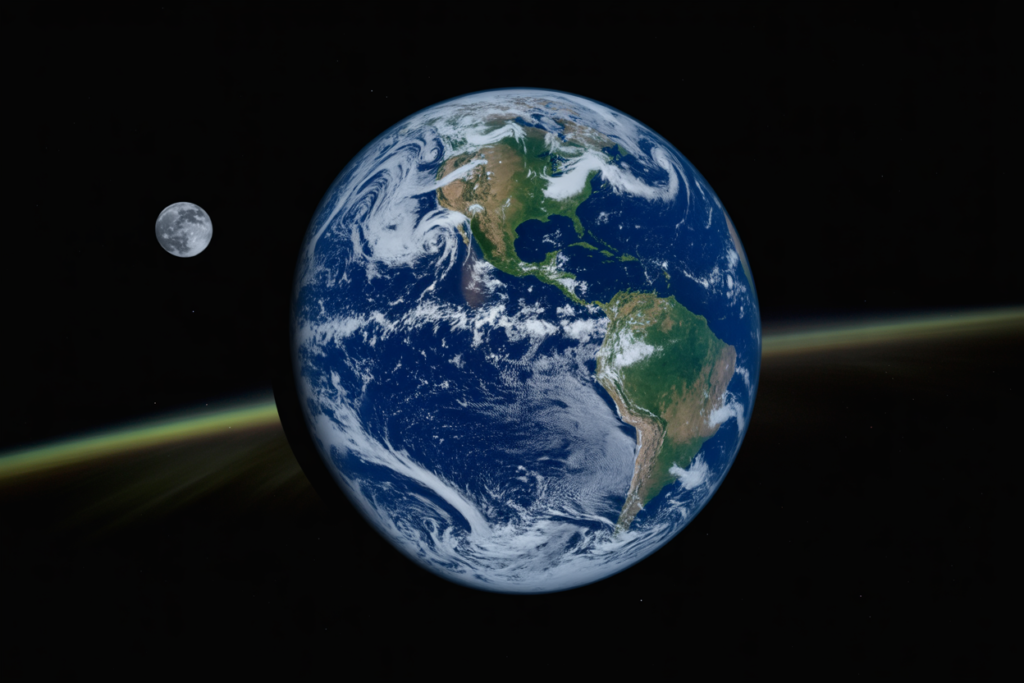Space tech isn’t just about astronauts floating around or landing rovers on Mars—it’s also quietly making life here on Earth safer, healthier, and surprisingly cooler. Many inventions created for space missions have ended up helping us with everyday problems like predicting disasters, cleaning water, and even improving food. Here are ten fascinating ways space technology is pulling double duty, keeping humanity thriving on our home planet while we gaze at the stars.
Satellite Weather Monitoring
Satellites designed for space missions now track hurricanes, wildfires, and droughts from orbit. This data helps communities prepare for disasters and saves countless lives every year. Instead of relying on guesswork, scientists get real-time insights into how storms move and change. Basically, space is giving us the ultimate early-warning system.
GPS for Rescue Operations
The same GPS tech that gets you to the nearest coffee shop also helps rescuers locate people during emergencies. From hikers lost in forests to ships in distress, satellites guide teams straight to the target. It’s a quiet but life-saving way space technology works behind the scenes. And yes, it’s also why your phone knows you’re still “five minutes away.”
Water Purification Systems
NASA originally developed water filtration systems for astronauts, but the technology is now used in places lacking clean drinking water. These portable filters remove dangerous bacteria and chemicals, making them crucial for disaster zones and remote villages. A tool built for space travel is literally saving lives on the ground.
Space Based Crop Monitoring
Earth observation satellites watch farmland from above, measuring soil moisture, plant health, and weather conditions. Farmers use this info to grow food more efficiently and reduce waste. It’s like having a personal drone army for agriculture, but way cooler and less noisy. Bonus: it helps prevent food shortages around the world.
Fire Detection from Orbit
Specialized satellites can spot wildfires before they spread out of control. This early detection allows firefighters to respond faster, saving lives, homes, and wildlife. Considering how unpredictable fires can be, this tech has become a game-changer in disaster management. Plus, it’s proof that space tools can fight very Earthly problems.
Telemedicine Inspired by Space
Medical tech built for astronauts, like remote health monitoring, now helps doctors care for patients in hard-to-reach places on Earth. These systems track vitals, send updates, and even allow specialists to guide local medics in real time. What started as astronaut safety gear is now connecting patients to life-saving care anywhere on the planet.
Space Materials in Everyday Safety Gear
Materials developed for spacecraft—like heat shields and ultra-light metals—have found their way into firefighter suits, helmets, and emergency shelters. They provide better protection in extreme conditions here on Earth. So the next time you see a firefighter, you’re also seeing a little bit of space tech in action.
Earthquake and Tsunami Monitoring
Space-based sensors detect tiny changes in Earth’s surface that can warn of earthquakes and tsunamis. These early signals give coastal communities valuable extra minutes to evacuate. It’s like space is texting us “incoming wave” before the disaster hits. Every second counts, and satellites are making those seconds possible.
Air Quality Tracking from Space
Spacecraft constantly monitor the gases and particles floating in our atmosphere. This data helps cities fight pollution and warn people when the air is unsafe to breathe. Without these satellites, we’d be flying blind in terms of what we inhale every day. It’s one of the least flashy but most important contributions of space science.
Spin Off Tech for Everyday Life
From memory foam mattresses to better baby formula, countless “space spinoffs” have become part of daily life. Many products we now take for granted were originally designed for astronauts and spacecraft. Space exploration might feel distant, but it’s quietly shaping the comfort and safety of life down here on Earth.

